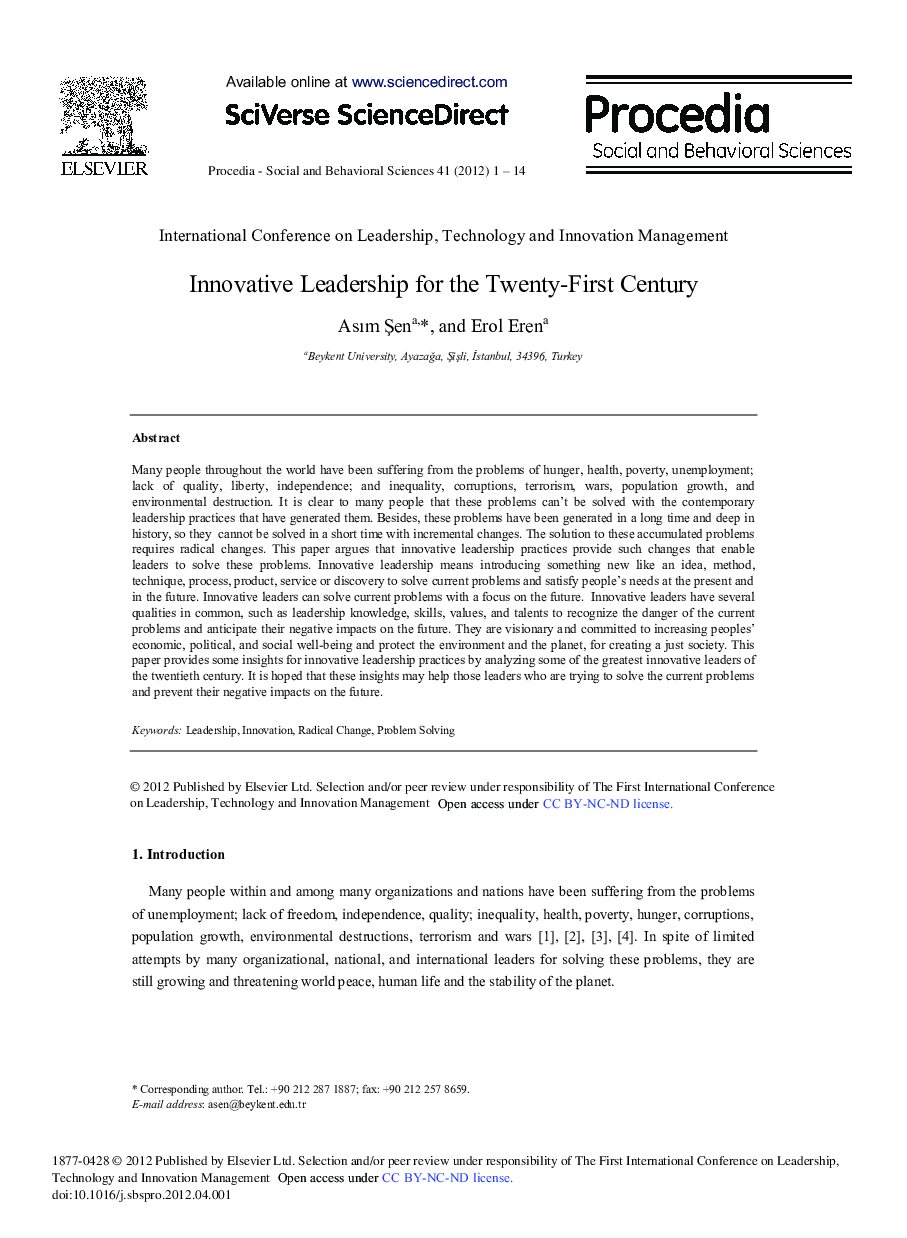| کد مقاله | کد نشریه | سال انتشار | مقاله انگلیسی | نسخه تمام متن |
|---|---|---|---|---|
| 1122445 | 1488518 | 2012 | 14 صفحه PDF | دانلود رایگان |

Many people throughout the world have been suffering from the problems of hunger, health, poverty, unemployment; lack of quality, liberty, independence; and inequality, corruptions, terrorism, wars, population growth, and environmental destruction. It is clear to many people that these problems can’t be solved with the contemporary leadership practices that have generated them. Besides, these problems have been generated in a long time and deep in history, so they cannot be solved in a short time with incremental changes. The solution to these accumulated problems requires radical changes. This paper argues that innovative leadership practices provide such changes that enable leaders to solve these problems. Innovative leadership means introducing something new like an idea, method, technique, process, product, service or discovery to solve current problems and satisfy people's needs at the present and in the future. Innovative leaders can solve current problems with a focus on the future. Innovative leaders have several qualities in common, such as leadership knowledge, skills, values, and talents to recognize the danger of the current problems and anticipate their negative impacts on the future. They are visionary and committed to increasing peoples’ economic, political, and social well-being and protect the environment and the planet, for creating a just society. This paper provides some insights for innovative leadership practices by analyzing some of the greatest innovative leaders of the twentieth century. It is hoped that these insights may help those leaders who are trying to solve the current problems and prevent their negative impacts on the future.
Journal: Procedia - Social and Behavioral Sciences - Volume 41, 2012, Pages 1-14